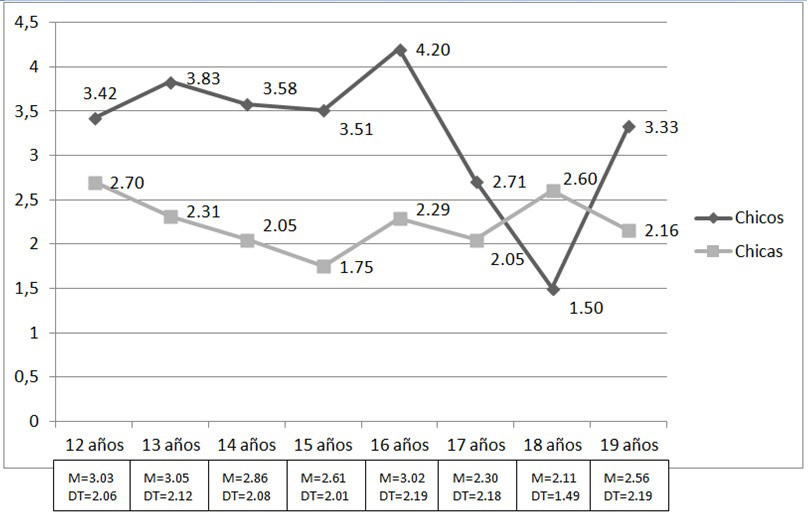Prosociality and Socialization Difficulties in Adolescence. Influences According to Sex and Sport Practice
Keywords:
Sport, Social Relations, Federated, Prosociality, AdolescenceAbstract
The aim of this study was to describe and compare the levels of prosociality and socialization difficulties depending on gender, level and type of sports practice. A total of 409 adolescents aged 12 to 19 participated in the work (M = 14.81; DE = 1.79) who were studying Secondary Education. The main results showed that girls had significantly higher levels of prosocial behaviour than boys, especially those who were not federated. More specifically, federated boys report significantly lower scores to socialize that the non-federate ones, while non-federated girls point out significantly to be less skillful in facets of the socializing personality than the federated ones. A high frequency of physical activity is related to good levels of prosocial tendency and optimal resources to socialize, marked mainly by the absence of fear of losing relationships or impulsiveness.

